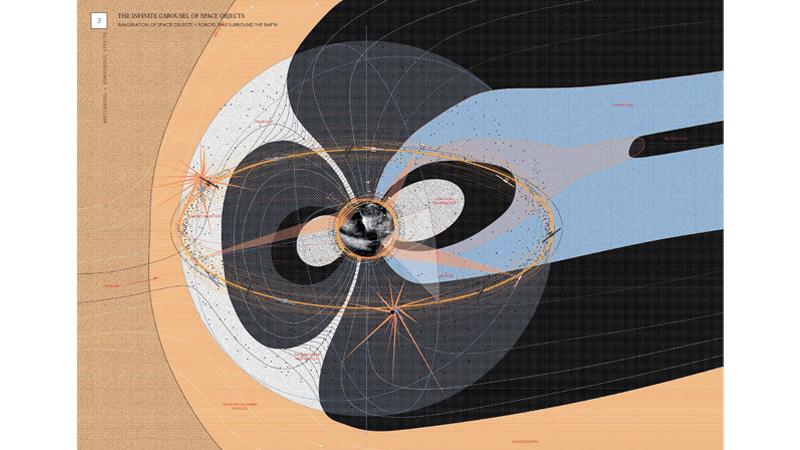Helen Windsor, a second year student studying on the Master of Architecture (MArch) (RIBA Pt II) course, was selected to present her research paper on recycling debris from space at an online conference.

Helen Windsor was selected to feature in the RAPS (Radical Architecture Practice for Sustainability) conference this September to present her design project work and associated research within the seminar’s sub-thematic.RAPS is a project that seeks to explore the role of architecture and architects in promoting sustainability. It aims to explore, create, develop and encourage future concepts, propositions and scenarios geared towards radical change.
Helen’s presentation was named ‘MISSION ASTRAEA – Trawling for treasure in the celestial seas’ which focused on a mission to collect atmospheric debris through a device, named the space elevator, which allows it to then be recycled back to earth and sold into the global economy. This device would work alongside debris sorting facilities, a government intelligence program and a Space Junk museum.
Within her exhibition, Helen noted: “Every satellite or space object is owned by a country, which renders debris removal to be politically problematic. Countries have already violated the Outer Space Treaty 1967 through littering space, and in protest Mission Astraea defames the legislation to cleanse space of their rubbish.”
Ben Pollock, John Cook and Laura Nica, tutors from Westminster’s Design Studio 18, commented on Helen’s imaginative work. They said: “Helen's project explores the growing issue of space debris and the environmental footprint in the fabrication and launching of satellites; from the global mining of precious metals, intercontinental manufacturing logistics through to the associated emissions of their launch.
“Responding to this, her project speculates on a future industry based around the capture and recycling of defunct satellites to harvest these otherwise discarded precious metals. In doing so pushing the speculative boundaries of what a circular economy could involve while reducing the need for extractive and environmentally damaging practices on earth.
“It was a fantastic and self-made opportunity for Helen, and a pleasure to hear her discuss her work with esteemed academics and seasoned professionals in this field. A testament to the quality and rigour of her research that went into supporting such imaginative work.”
Find out more about Architecture, Interiors and Urban Design courses at the University of Westminster.


